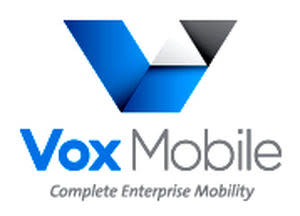Mobility is much bigger and faster than the internet revolution, says Vox Mobile CSO

Samsung Galaxy S6 (bottom) and S6 Edge (top)
Image: Josh Miller/CNET
samsunggalaxysgedge.jpg

"Enterprise mobility is, in many ways, the tip of the spear of a much larger transformation in how business utilizes technology," said Jim Haviland, Chief Strategy Officer (CSO), Vox Mobile, in a recent email Q&A with TechRepublic. In the same way that the internet changed business processes, "mobility provides an opportunity to rethink every aspect of business model and process and is the first step towards an IoT strategy and becoming a digital business," he explained, adding that "actually, this is much bigger and faster than the internet revolution."
Speaking of the enterprise possibilities, Haviland said the "fact is, there is no better opportunity for businesses to find explosive growth and the next quantum increase in productivity than mobility -- and waiting is likely to have disastrous consequences."
Located in the Cleveland, Ohio metro area, Vox Mobile offers broad enterprise mobility services, including mobile technology consulting, management, and support to companies and, according to Crunchbase, just completed a $4.2 million funding round in February 2015.
In this interview, Haviland also discusses how to protect company data in BYOD, compliance issues and mobility, innovation at Vox Mobile, and the tech scene in Cleveland.
TechRepublic: What are the most significant trends in your competitive space?
Jim Haviland: First, the enterprise mobility space is very broad and continuing to expand in depth, variety, and complexity. Enterprise mobility is, in many ways, the tip of the spear of a much larger transformation in how business utilizes technology. Not unlike how the internet changed business process and customer interaction, mobility provides an opportunity to rethink every aspect of business model and process and is the first step towards an IoT strategy and becoming a digital business. Actually, this is much bigger and faster than the internet revolution. Internet adoption occurred at a snail's pace by comparison.

CSO Jim Haviland
Image courtesy of Vox Mobile
jimhavilandnojacketcroppp.jpg

The opportunity in the market outpaces the rise of competition for us. Fear and a lack of cohesive strategy are far greater issues for our space. A full solution involves vendors and change cycles that give most enterprises pause. The fact is, there is no better opportunity for businesses to find explosive growth and the next quantum increase in productivity than mobility -- and waiting is likely to have disastrous consequences. There are plenty of profitable businesses that are going to find themselves suddenly added to the list that includes JCPenney, Kodak, and Blockbuster.
TechRepublic: How would you advise companies to keep their own data safe when employees are using personal devices for work-related tasks and communications?
Jim Haviland: There is no simple answer to mobile security but there are myriad options. The indisputable reality is that employees will have access to technologies that you don't own or control, and that they will want to include them in how they get things done. We have found three general strategies to be particularly effective at keeping this from being a major security concern: 1) enable low-risk activities, 2) absolutely restrict the highest-risk activities 3) overcommunicate the reasons for both the enablement and the restrictions.
The vast majority of security and compliance violations come from ignorance or misunderstanding. The more you engage users in understanding the outcome of their actions, the more they can play a positive role and make good choices. The need for this isn't going away. Chances are, there are many types of documents and communications that happen in your organization that don't pose much risk from data leakage or loss. There is also data and communications that are high risk. Users will embrace and support restrictions if they understand the reasons for them. This does require a minimal Data Management capability, where data gets routinely classified so it can more appropriately be enabled or protected.
TechRepublic: How does Vox Mobile handle mobility and compliance issues in client industries that have more regulatory oversight, such as healthcare and financial services?
Jim Haviland: While it is easy to name the regulations for many industries, there are no specific technologies that can ensure compliance. There is also little consistency within any industry on how to balance compliance with the needs and operations of the business. That said, our approach is to help clients understand the range of options and approaches we see across the industry, including making introductions to some of their peers at other organizations.

Image courtesy of Vox Mobile
vox-mobile-logo.jpg

The compliance game is, at a low level, about "making best efforts" and following industry best practices, so we provide a number of means of offering Independent Validation and Verification (IVV) of their approach. At the higher end, most clients do have some sense of what privacy and security mean to them. Our consulting group has a process for drawing these definitions out of the organization and documenting them so everyone can agree on goals -- then mapping the course.
The fact is, HIPAA, FINRA, Dodd-Frank, and many other regulations aren't well-formed enough to give anyone specific guidance on technologies, and they are all in a state of flux. The most important way we help clients stay compliant is by offering consulting services around re-assessing on a regular basis and forming the right governance approach to make this a fluid part of the organization.
TechRepublic: Since Vox Mobile was founded in 2004, your firm has seen plenty of technological change. How do you manage innovation?
Jim Haviland: Innovation has to be kept on equal footing and stature with profitability and growth. Vox Mobile would be in deep trouble if innovation weren't part of our DNA. We started the company in 2004 thinking that the revolution of mobility was at hand. Our first two major clients were using BlackBerry infrastructure and devices to deploy mobile apps to make truly transformational changes to their business. In the years since, we spent most of our time supporting more modest client visions, but it gave us a chance to really hone operations, software integrations, and scalability. We are tracking over 200 potential technology partners that we could include in our solution stack, and we've established a pretty effective method of selecting the ones likely to be valuable to our clients in the short term.
In short, innovation and continuous improvement are baked into everything we do. Every department has responsibilities that include metrics for improving delivery and expanding scope.
TechRepublic: Could you describe the Global Enterprise Mobility Alliance (GEMA), how Vox Mobile is involved, and your personal contribution to it?
Jim Haviland: GEMA is a Swiss joint venture formed by leading providers of managed mobility services from around the world. Members of GEMA have contributed capital, intellectual property, best practices, and resources to create a global managed services organization built to offer multi-national companies (MNCs) a single global contract, global SLAs, and consistent global delivery. Members have integrated processes and technologies for procurement, deployment, server management, and end-user help desk and cross-sell each other's solutions in consulting, mobile app development, Wi-Fi management and, a number of customizable mobile apps and web services. Vox Mobile is a founder and shareholder in GEMA and provides a number of staff members to the organization, including myself.
TechRepublic: It is interesting that Vox Mobile can be called a "pure-play" mobile specialist. What services and benefits do you offer to clients?
Jim Haviland: We help our clients focus on innovation and transformation by offering as-a-service access to best in class systems, process and personnel.
We have a consulting group, Vox Architect, which offers packaged engagements for the creation of mobile programs -- everything from the basics of policy and BYOD to workforce mobilization plans.
We offer systems and services for device, accessory, and carrier services procurement, globally including our internally developed product, Vox Choice, which includes many unique features for automating BYOD.
We offer deployment services that utilize over 60 configuration and logistics centers around the world to configure and deploy device kits to users globally and handle break-fix and returns, called Vox Deploy.
Our 24/7 multi-language helpdesk that supports end-users is our most prolific product, as we lead the market in customer satisfaction (NPS=53). Our version of this support, called Vox Assist, includes full support for the devices, carrier services, and apps -- really focusing on First Contact Resolution (FCR), meaning we solve the problem 100%, regardless of where the problem is.
We also offer systems management for mobility products like EMM (enterprise mobility management), called Vox Admin. With the constant changes in those products, it makes no sense for clients to get to proficiency on the technology. They need to focus on utilizing the capabilities.
Lastly, we have a very effective expense management offering, Vox Control, that, utilizing best-in-class TEM (telecom expense management) products, helps clients maximize their spend on mobility by managing their carrier relationships and their cloud services relationships and allocating those costs back to the right people or departments so they can be rationalized against benefit.
TechRepublic: This past December, Inc.com included Vox Mobile in its top 10 list of fastest-growing companies in Cleveland. What are your plans for 2015-16?
Jim Haviland: Vox Mobile is experiencing an acceleration of growth as more companies realize that mobility is their best path to growth, productivity or, at the very least, holding their own over the next 5 years. We are adding 30 more members of GEMA this year, to accommodate the needs of the multi-nationals we serve. We are also utilizing the programs developed by our GEMA partners to expand our enterprise app support capabilities and add app development and Wi-Fi management to our portfolio. We will also be introducing a handful of very interesting new technology companies to our market as we see the next generation of mobile security products and Internet of Things come to maturity.
TechRepublic: As an aside, since I'm curious -- what can you share about the tech scene in Cleveland, OH?
Jim Haviland: While Cleveland is no Silicon Valley, there are a number of significant technology-focused companies here that vie for the top tech talent and provide opportunities for growth. Progressive Insurance, OnBase by Hyland, SparkBase, OneCommunity, and others are creating interesting products but also spawning startups. Our startup scene here tends to slant towards a mix of technology and manufacturing and quite often address more practical needs than what we see on the coasts. This is not a flashy or trendy scene, but the talent is absolutely world-class. Clevelanders will tell you that they have all the best parts of the other scenes without the hype. We don't do hype here.
We also have the only LeBron James -- definitely more talent and skill than flash there.
Also see
Half of enterprises have no budget at all for mobile security, survey finds (ZDNet)
Security and Privacy: New Challenges (ZDNet/TechRepublic special feature)
BYOD (Bring Your Own Device) Policy (Tech Pro Research)
Improving BYOD security with Microsoft Enterprise Mobility Suite
The race to 5G: Inside the fight for the future of mobile as we know it
The gadget with a conscience: How Fairphone crowdfunded its way to an industry-changing smartphone
Note: TechRepublic, ZDNet, and Tech Pro Research are CBS Interactive properties.

